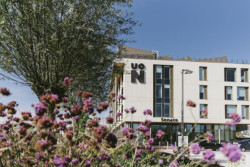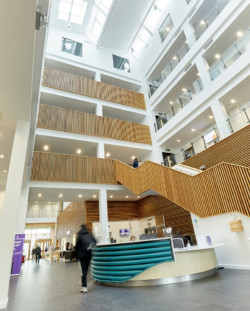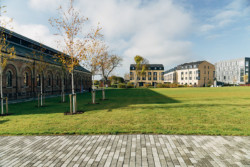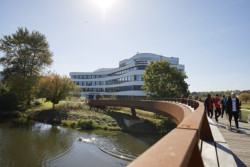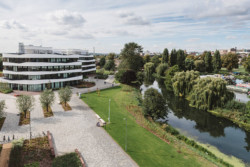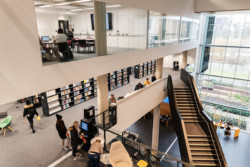
Alan Lovell
Senior Lecturer in Tourism Management
Faculty of Business and Law
DiscoverGet in touch with us as we may be able to offer you a place for September 2024 through Clearing.
UCAS Code
BA: N830
BA with Foundation: N831
Level
UndergraduateUG
BA (Hons)Duration
Full Time: 3 Years
Full Time Foundation: 4 years
Part Time: 4 - 6 Years
Starting
September
BCC at A Level
DMM at BTEC
UK Fees 24/25
Full Time: £9,250
Part Time: £1,540 (per 20 credits)
Foundation: £9,250
International Fees 24/25
Full Time: £15,200
Foundation: £15,200
Location
For questions regarding study and admissions please contact us:
International Tourism Management is an ever growing in demand skill, with over a billion people around the world travel every year. Internationally, the tourism industry supports around 200 million jobs worldwide, or one in every 11th worker[i]. The industry has continued to grow in spite of the world-wide recession, and continues to expand.
International Tourism Management courses offers a wide range of employment opportunities and careers both nationally and internationally, from multi-national to local organisations, from world heritage destinations to national parks. Our tourism management degree has been specifically designed to meet the needs of tourism employers and to provide you with the qualifications and skills necessary for real-world success giving you a distinct advantage in an increasingly competitive careers market.
The University of Northampton is a top 10 institution for Hospitality, Events Management and Tourism for Career Prospects (after 15 months) in the Best UK University Guardian League table for 2024.
Professional Accreditation: Tourism Management Institute
Updated 03/07/2024
The International Tourism Management degree at UON has been designed to contribute towards achieving the following United Nations Sustainable Development Goal: SDG15 of Life on Land.
The international tourism industry is a dynamic, changing sector and graduates from this course will be equipped with the creative tourism management skills and knowledge to allow them to adapt and be successful in this diverse business environment. This course has been specifically designed to meet the needs of industry and is composed of four compulsory modules, and two compulsory modules. You are encouraged to develop a critical understanding of tourism business theory combined with a proactive business development approach throughout the course.
You will have the opportunity to study innovative modules such as the Tourism Consultancy project where you apply theory to a live project and put your project management skills to practice, gaining valuable experience that will enhance your job prospects. Our International Destination Management module allows you to analyse destinations in a variety of contexts (urban, rural, attraction, resort, regional, national and international) whilst incorporating industry best practice guidelines. Studying the Innovation in Tourism module will give you the chance to analyse the process of new product development and developments in the tourism industry through examining niche tourism products such as ecotourism, dark tourism, adventure tourism and cultural tourism.
[i] UN World Tourism Trends 2018
You are encouraged to undertake an optional year-long placement in between Stages Two and Three of study. If you meet the entry criteria, and choose to take up a placement year you will find it an invaluable experience that helps you to apply your learning in your final year and prepares you for your career. Whilst on your Optional Work Placement Year you will study a 40 credit module ‘The Placement Year Experience – Organisations in Context’. We offer a lot of support in helping you to find a placement, which can be in the UK or overseas.
Please note the modules shown here relate to the academic year 24/25. The modules relating to the academic year 25/26 will be available from June 2025.
A typical offer for International Tourism Management would be:
We welcome applications from students with a mix of A levels and BTEC/Cambridge Technical qualifications.
A typical offer for the Integrated Foundation Year would be:
We welcome applications from students with a mix of A levels and BTEC/Cambridge Technical qualifications.
For more more information on how to make an application, please visit our How to Apply page.
If you are an International student and would like information on making an application, please see our How to Apply page.
All International and EU students applying for a course with us must meet the following minimum English language requirements:
For information regarding English language requirements at the University, please see our IELTS page.
Fees quoted relate to study in the Academic Year 2024/25 only and may be subject to inflationary increases in future years.
For information on the scholarships available to you, please see our scholarships page.
For more information about possible funding options, please visit our Fees and Funding pages.
The study trip to a European destination is optional and the cost should not exceed £500 for flights and accommodation. You will need to allow £100 for your expenses.
Fees quoted relate to study in the Academic Year 23/24 only and may be subject to inflationary increases in future years.
Our International Tourism Management course is accredited by the Tourism Management Institute (TMI), the leading professional body for tourism management in the UK.
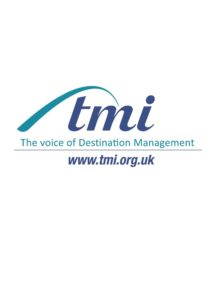
At the University of Northampton, everything we do, from funded trips to paid internships, is to give you everything you need to make a difference when you leave.
If you join our full-time BA International Tourism Management degree at Northampton, you will receive a laptop when your course begins*. The laptops are built to a bespoke custom specification ideal for use in the seminar room, collaborative group work or studying at home.
Whatever your ambitions, we’re here to help you to achieve them. We’ll support you to identify the skills you’re learning during your course, find your strengths and secure practical experience so that when it comes to applying for jobs or further study you’ll feel confident in standing out from the crowd. We’ve created the Northampton Employment Promise because we are so confident that if you focus on your studies and complete one of our awards you’ll be highly employable by the time you graduate. Putting you in a great position to secure employment or continue your studies.
To check out the full list of perks, visit our Student Perks page or dedicated International Perks page.
*UK fee payers only (see Terms and Conditions for further details).
The Integrated Foundation Year (IFY) offers a new and exciting route into studying for a degree, attracting ambitious and driven students who are willing to learn and advance.
If you have non-standard qualifications or do not quite meet the admissions requirements for Events Management we can offer you a fantastic opportunity to study a four year Events Management programme which includes a Integrated Foundation Year. The Integrated Foundation Year will help you develop the theoretical/practical and academic skills you need, in order to successfully progress to the full award.
Our four-year courses will enable you to successfully follow the degree pathway of your choice while gaining essential study skills. The foundation year of your chosen degree will be studied on a full-time basis and is aimed at supporting the transition to higher education. Years two, three and four are then studied as a standard degree programme.
Please see our Integrated Foundation Year page for more details.
You can expect taught study for the International Tourism Management course to be a combination of lectures, seminars and workshops, usually totalling 12 hours per week. We recommend that you spend 24 hours per week in self-directed study time.
This course can be studied full-time over three years or over four years with an optional work placement year or Foundation Year. We also offer a flexible part-time study option.
A variety of individual and group-based assessments are used in this course including written reports, client briefs, presentation, portfolio and examinations.
In previous years students have participated in at least one optional study trip to a European destination. The cost of optional trips would not normally exceed £500 for flights and accommodation. You will need to allow approximately an additional £100 for your expenses.
The International Tourism Management teaching team also aims to provide a regional or national study trip annually to a tourism attraction or similar destination. In some cases you will be required to contribute to the cost of entry; this would normally not exceed £50.00.
*Future study trips are dependent on Government and local travel guides
Amber’s StoryAmber was inspired to study her degree here at UON after attending an open day and hearing the lecturers talk so passionately about International Tourism Management and Events Management. Amber is now working as an Events Coordinator in the University of Northampton’s Marketing department and uses the skills learnt during her studies every day.
Senior Lecturer in Tourism Management
Faculty of Business and Law
DiscoverSenior Lecturer in Leisure Management
Faculty of Business and Law
DiscoverSenior Lecturer in Tourism Management
Faculty of Business and Law
DiscoverSenior Lecturer in Hotel Management
Faculty of Business and Law
DiscoverStudying International Tourism Management at university creates a world of opportunities in attraction and destination management, marketing, tourism consultancy, conferencing, event management, tour operations and retail travel.
Many of those who have graduated from the University with a International Tourism Management degree have gone on to work for airlines, tour operators, visitor attractions, conference organisers and business travel both in the UK and abroad.
On completion of your BA International Tourism Management degree, you will have the opportunity to continue your studies by undertaking one of our industry relevant master’s degrees:
Our master's courses are a great way to enhance the skills you have already learnt. Benefit from our on postgraduate fees to give you a CV that will catch the eye of employers.
As a BA International Tourism Management degree student, you will have access to the University of Northampton’s on-campus facilities, services, and study areas.

Throughout this course you will learn the principles and theoretical frameworks related to events management and how to apply this theory in practice.

